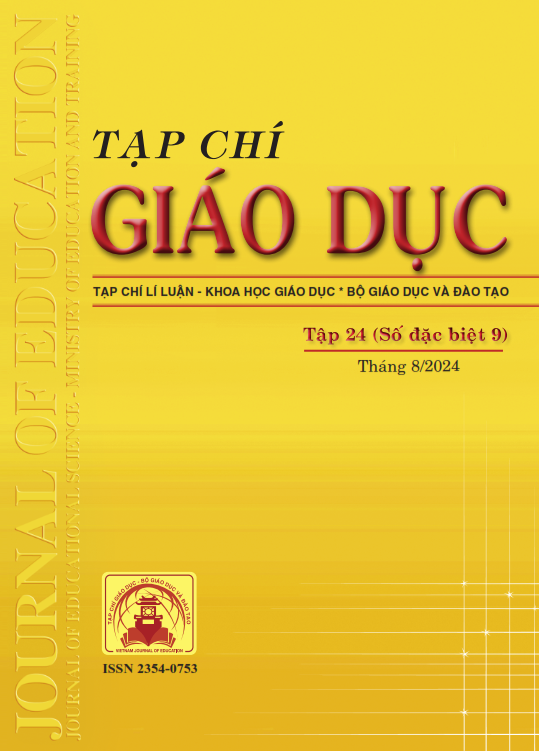Thách thức và cơ hội khi ứng dụng công nghệ số trong đào tạo ngành Du lịch tại Trường Đại học Nguyễn Tất Thành
Tóm tắt
In the context of the global digital transformation, the application of digital technology in education and training has become increasingly important. The tourism industry, which requires high interaction and practical skills, is witnessing significant changes thanks to digital technology. This study was conducted at the Nguyen Tat Thanh University, to evaluate the challenges and opportunities in applying digital technology to the training process. The study found that although digital technology offers significant opportunities to improve the quality of tourism training, it also faces numerous challenges. The opportunities include enhancing students' learning experiences through online learning tools, virtual reality (VR), and artificial intelligence (AI); increasing accessibility and flexibility in learning; expanding the scope of training and attracting international students. However, the major challenges include limitations in technology infrastructure, lack of technological skills among lecturers and students, and cultural barriers in accepting and applying new technologies. Based on the research results, the paper discusses solutions to overcome these challenges and leverage the opportunities provided by digital technology. These solutions include investing in technology infrastructure, training and enhancing technological skills for lecturers and students, and building a positive learning culture that adapts to the changes of the modern tourism industry.
Tài liệu tham khảo
Bond, M., Marín, V. I., Dolch, C., Bedenlier, S., & Zawacki-Richter, O. (2020). Emergency remote teaching in higher education: Mapping the first global online semester. International Journal of Educational Technology in Higher Education, 17(1), 29. https://doi.org/10.1186/s41239-020-00234-x
Goyal, S., & Tambe, S. (2020). AI in education: A systematic review. International Journal of Educational Technology in Higher Education, 17(1), 1-12. https://doi.org/10.1186/s41239-020-00218-x
Huang, Y.-M., Wu, T.-T., & Chen, N.-S. (2020). The effectiveness of using procedural scaffolding in a mobile synchronous learning environment. Educational Technology Research and Development, 68(3), 1467-1495. https://doi.org/10.1007/s11423-020-09764-0
Nguyen, T. M. (2020). Barriers to the adoption of E-learning in Vietnam: A comparison with the obstacles found in other countries. Journal of eLearning and Knowledge Society, 16(1), 9-20. https://doi.org/10.20368/1971-8829/1135188
Radianti, J., Majchrzak, T. A., Fromm, J., & Wohlgenannt, I. (2020). A systematic review of immersive virtual reality applications for higher education: Design elements, lessons learned, and research agenda. Computers & Education, 147, 103778. https://doi.org/10.1016/j.compedu.2019.103778
Zawacki-Richter, O., Marín, V. I., Bond, M., & Gouverneur, F. (2019). Systematic review of research on artificial intelligence applications in higher education - Where are the educators?. International Journal of Educational Technology in Higher Education, 16(1), 1-27. https://doi.org/10.1186/s41239-019-0171-0
Tải xuống
Đã Xuất bản
Cách trích dẫn
Số
Chuyên mục
Giấy phép

Tác phẩm này được cấp phép theo Ghi nhận tác giả của Creative Commons Giấy phép quốc tế 4.0 .












